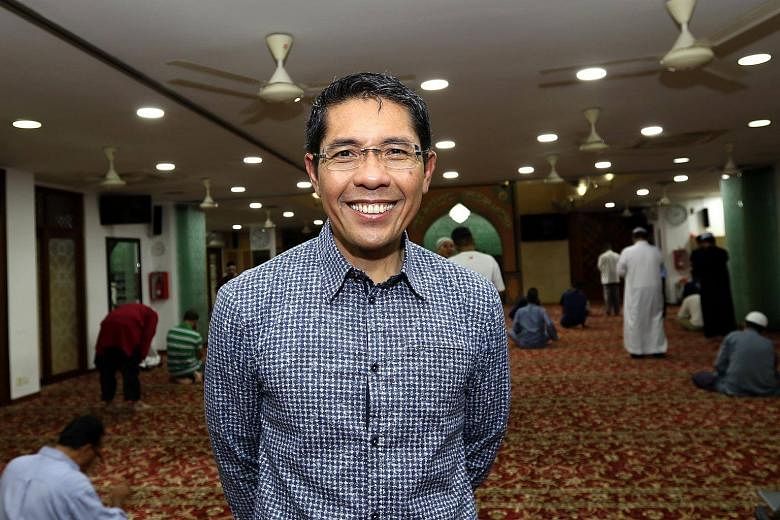Strong and stable relations between the United States, China and Japan are a prerequisite for peace and prosperity in the Asia-Pacific, Senior Minister of State Maliki Osman said yesterday.
And US President Donald Trump's upcoming visit to the region underscores America's continued commitment to the region, he added during his opening speech at the Asia-Pacific Geo-Economic Strategy Forum.
Dr Maliki said the way these three major regional players handle their relationships will have spillover effects on the region as a whole. He also listed two other key issues that must be handled well for the region to see continued growth: Maintaining a cohesive Asean, and deepening economic integration.
The US-Japan Security Alliance has been the cornerstone of stability in Asia-Pacific, said Dr Maliki, who holds the Defence and Foreign Affairs portfolios.
Investments from both countries have also spurred growth and industrialisation in many countries in the region, he added.
But with the region's growth story now unfolding against the backdrop of a rising China, how the US and Japan handle this development is of vital importance, he said at the forum organised by Nikkei, the Centre for Strategic and International Studies, and the Lee Kuan Yew School of Public Policy .
Describing US-China relations as one of the "most important bi-lateral relationships in the world", Dr Maliki said it is good both sides are pursuing mutually beneficial cooperation.
And Japan-China relations - while complicated by issues of territorial sovereignty and history - have "seen a recent uptick".
He hopes that the high level of interdependency among the three major players will continue to deepen, and thus bring about "greater growth opportunities, and not conflict and confrontation".
To this end, an integrated and cohesive Asean can act as a neutral space for external powers to engage each other, he said.
During a panel discussion later, dean of the Lee Kuan Yew School of Public Policy Kishore Mahbubani said it was in the interests of both the US and China to ensure that the regional bloc remains united.
Asean risks being torn asunder if member nations are forced to choose sides between the two superpowers, he warned.
Dr Maliki also spoke about the importance of promoting economic integration, citing the Trans-Pacific Partnership trade deal, which the US has pulled out of, as an example of such efforts.
He said the remaining 11 countries are keen to push ahead, and "hope to welcome the US back when it is ready".
Former US chief of naval operations Gary Roughead, in his keynote speech, said he did not see a reversal on this decision, but was "hopeful that there will be a more accommodating stance" on trade during Mr Trump's visit.
The US President will visit China, Japan, South Korea, the Philippines and Vietnam next month, and has said he will attend key Asian summits. North Korea's nuclear tests are expected to be among the top items on his agenda.
Touching on this, Mr Roughead and former US deputy secretary of state Richard Armitage, who spoke at the panel, said the use of force by the US to resolve the issue was a possibility, though not the preferred choice.
Mr Roughead said: "I cannot conceive of any nation's leader, regardless of the administration or political bent, relying only on defensive measures if the annihilation of a city is a possibility."
Japan's Parliamentary Vice-Minister for Foreign Affairs Iwao Horii, who was also on the panel, said it was clear "dialogue for the sake of dialogue is futile", and has allowed North Korea to buy time and pursue its nuclear programme.


